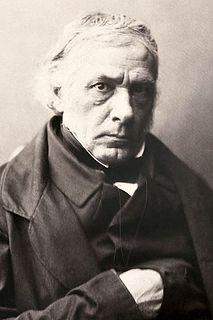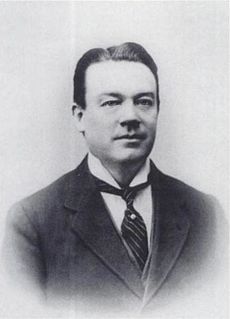Ein Zitat von Edmund Burke
Die Religion dient dem Menschen in einem bescheidenen Leben dazu, seine Natur zu heben und ihn an einen Zustand zu erinnern, in dem die Privilegien des Reichtums aufhören, in dem er von Natur aus gleich sein wird und in der Tugend mehr als gleich sein kann.
Verwandte Zitate
Alle Menschen sind von Natur aus gleich in dem gleichen Recht, das jeder Mensch auf seine natürliche Freiheit hat, ohne dem Willen oder der Autorität eines anderen Menschen unterworfen zu sein; Da alle gleich und unabhängig sind, sollte niemand einem anderen in seinem Leben, seiner Gesundheit, seiner Freiheit oder seinem Besitz Schaden zufügen.
Denn es liegt in der Natur der Menschen, dass sie, so sehr sie auch viele andere für geistreicher, beredter oder gebildeter anerkennen mögen, kaum glauben werden, dass es viele gibt, die so weise sind wie sie selbst, denn sie sehen ihren eigenen Witz in der Hand. und andere Männer aus der Ferne. Aber das beweist eher, dass die Menschen in diesem Punkt gleich und nicht ungleich sind. Denn normalerweise gibt es kein größeres Zeichen für die Gleichverteilung einer Sache, als dass jeder mit seinem Anteil zufrieden ist.
Alle Menschen haben das gleiche Recht auf die freie Entfaltung ihrer Fähigkeiten; Sie haben das gleiche Recht auf den unparteiischen Schutz der souveränen Justiz, die Staat genannt wird; Aber es ist nicht wahr, es verstößt gegen alle Gesetze der Vernunft und Billigkeit, es verstößt gegen die ewige Natur der Dinge, wenn der träge Mensch und der fleißige Mensch, der Verschwender und der Ökonom, der Unvorsichtige und der Weise etwas erreichen sollten die gleiche Menge an Waren genießen.
Die Natur hat die Menschen in ihren körperlichen und geistigen Fähigkeiten so gleich gemacht, dass, obwohl es manchmal einen Menschen gibt, der offensichtlich körperlich stärker oder geistig schneller ist als ein anderer, der Unterschied zwischen Mensch und Mensch, wenn man alles zusammenrechnet, nicht besteht so beträchtlich, dass ein Mann daraufhin jeden Vorteil für sich beanspruchen kann, den ein anderer möglicherweise nicht so gut beansprucht wie er.
Gott, der von Natur aus gut und leidenschaftslos ist, liebt alle Menschen gleichermaßen wie sein Werk. Aber er verherrlicht den tugendhaften Menschen, weil er in seinem Willen mit Gott vereint ist. Gleichzeitig ist er in seiner Güte barmherzig gegenüber dem Sünder und bringt ihn durch die Züchtigung in diesem Leben zurück auf den Weg der Tugend. Ebenso liebt ein Mann mit gutem und leidenschaftslosem Urteil alle Menschen gleichermaßen. Er liebt den tugendhaften Menschen wegen seiner Natur und der Redlichkeit seiner Absichten; und er liebt den Sünder auch wegen seiner Natur und weil er in seinem Mitgefühl Mitleid mit ihm hat, weil er törichterweise in der Dunkelheit gestolpert ist.
Shakespeare war kein Gelehrter in dem Sinne, wie wir ihn heute verstehen, und doch hat noch nie ein Mensch gelebt und wird wahrscheinlich auch nie leben, der ihm in der Ausdrucksweise seiner Gedanken gleichkam oder gleichkommen wird. Er las einfach das Buch der Natur und interpretierte es vom Standpunkt seines eigenen großartigen Genies.
Die Liebe zum Handeln ist ein Prinzip viel stärkerer und zweifelhafterer Natur. Es führt oft zu Wut, Ehrgeiz und Rache; aber wenn es von dem Sinn für Anstand und Wohlwollen geleitet wird, wird es zur Mutter aller Tugenden, und wenn diese Tugenden mit gleichen Fähigkeiten einhergehen, kann eine Familie, ein Staat oder ein Reich ihre Sicherheit und ihren Wohlstand zu verdanken haben der unerschrockene Mut eines einzelnen Mannes.
Als Präsident wird mein Vater die Arbeitsgesetze ändern, die eingeführt wurden, als Frauen noch keinen nennenswerten Teil der Erwerbsbevölkerung ausmachten. Er wird Kinderbetreuung bezahlbar und für alle zugänglich machen. Er wird für gleichen Lohn für gleiche Arbeit kämpfen, und dafür werde ich an seiner Seite ebenfalls kämpfen.
Der Mensch ist das einzige Tier, das sich in der Natur nicht zu Hause fühlt, das sich aus dem Paradies vertrieben fühlen kann, das einzige Tier, für das seine eigene Existenz ein Problem ist, das er lösen muss und dem er nicht entkommen kann. Er kann nicht zum vormenschlichen Zustand der Harmonie mit der Natur zurückkehren und weiß nicht, wo er ankommen wird, wenn er weitergeht. Der existenzielle Widerspruch des Menschen führt zu einem Zustand ständigen Ungleichgewichts. Dieses Ungleichgewicht unterscheidet ihn vom Tier, das gleichsam im Einklang mit der Natur lebt.
Wenn es bei Redewendungen mehr darum geht, geboren als ausgewählt zu werden, dann sind die Dinge des Lebens und der menschlichen Natur, mit denen ein Mann aufgewachsen ist – (nicht, dass die Erfahrung eines Mannes besser ist als die eines anderen, sondern dass es „seine“ ist.) – -kann ihm in seiner Substanz und Art etwas Besseres geben als eine überlange Zeit aufgesetzter Redewendungserziehung, die höchstwahrscheinlich nicht zu seiner Konstitution passt. Mein Vater pflegte zu sagen: „Wenn ein Dichter mehr über ein Pferd weiß als über den Himmel, bleibt er besser beim Pferd, und eines Tages trägt ihn das Pferd vielleicht in den Himmel.“
Wenn der Mensch in der Lage ist, sich der Natur zu unterwerfen, wird die Natur auf seine Bedürfnisse reagieren. Die allmächtige Natur ist allmächtig und allliebend, denn die Naturgesetze dienen der Erschaffung und Entwicklung aller Wesen und Geschöpfe im gesamten Kosmos. Es gibt keine größere Güte als die Güte der Natur.
Auch alle werden diesen heiligen Grundsatz bedenken, dass, obwohl der Wille der Mehrheit in allen Fällen vorherrschen soll, dieser Wille, rechtmäßig zu sein, vernünftig sein muss; dass die Minderheit ihre gleichen Rechte besitzt, die gleiches Gesetz schützen muss und deren Verletzung Unterdrückung wäre.










































